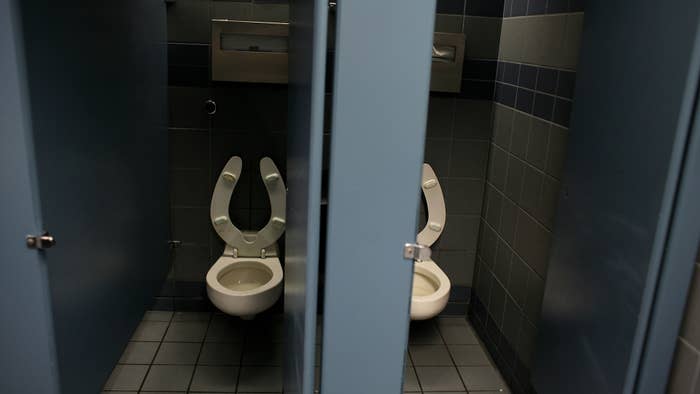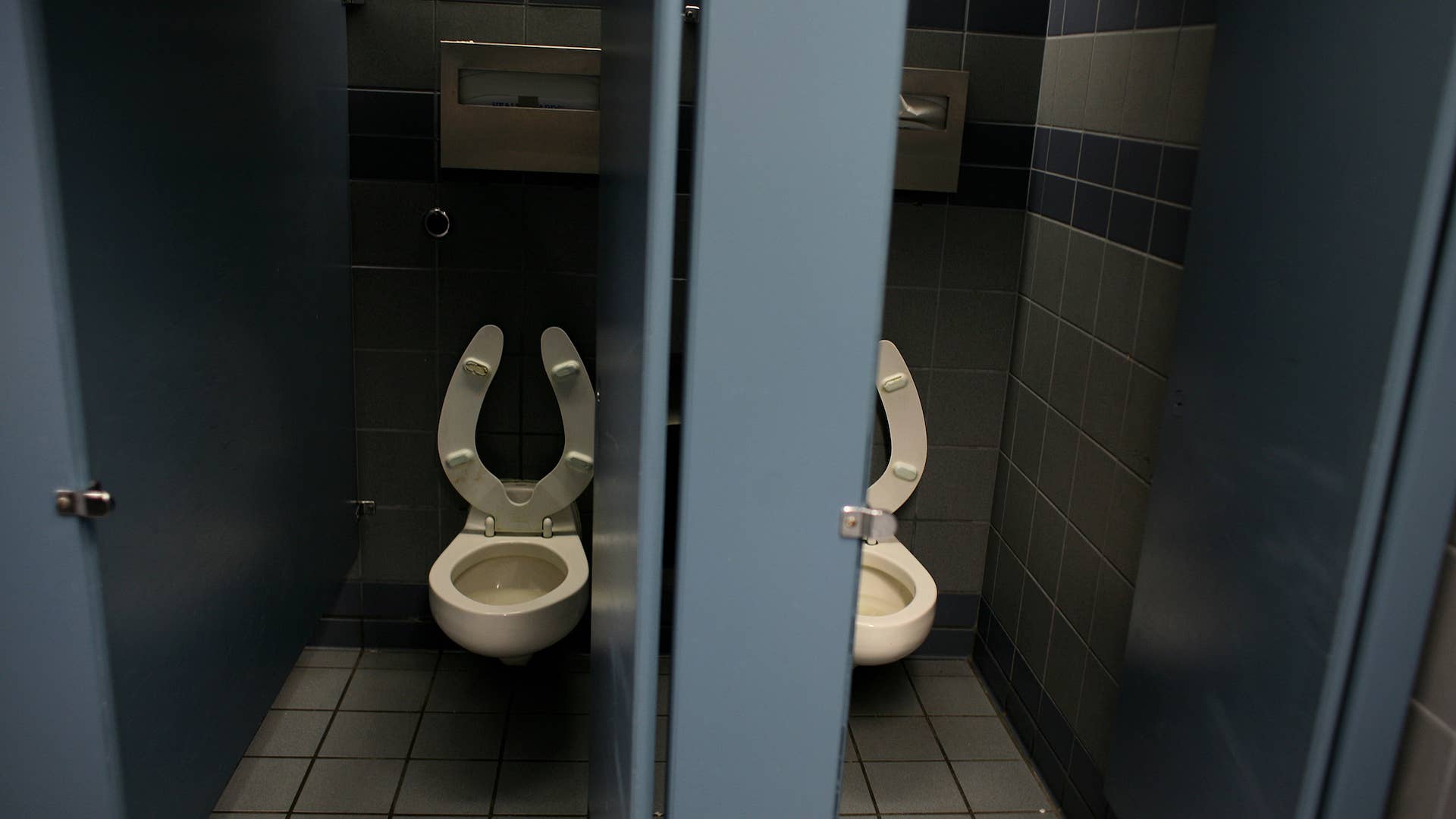
A study conducted by Yangzhou University in China suggests that the act of flushing a public toilet could potentially spread coronavirus to the next person who uses that same stall, the Washington Post reports.
"Flushing will lift the virus up from the toilet bowl," co-author Ji-Xiang Wang said via email. And here's the part where it gets disgusting, and potentially turns you into a germaphobe. Whenever someone flushes, the bits of fecal matter that lie in the bowl get violently sloshed around, causing a "toilet plume" where a cloud of aerosol droplets rises nearly three feet, and lingers long enough in the air to come into contact with the next person who goes into the stall.
Now, before determining that you will be avoiding public restrooms for the rest of your life, there is one easy way to prevent the spread of coronavirus, but it depends on the consideration and courtesy of others, which is always a crapshoot. The previous toilet user must lower the lid before flushing, but since we're living in a post-COVID-19 world, it's understandable that people would be apprehensive to even touch a toilet seat.
It's unclear, however, if the amount of coronavirus that gets swept up in these aerosol droplets is enough to get someone infected. "The risk is not zero, but how great a risk it is, we don't know," Charles P. Gerba, microbiologist at the University of Arizona, told the Post. "The big unknown is how much virus is infectious in the toilet when you flush it … and how much virus does it take to cause an infection."
A study on how someone's feces could contribute to the spread of coronavirus was published in the journal Lancet in March where it was determined that the virus could remain in the stool for up to a month after the person had gotten over the illness.

